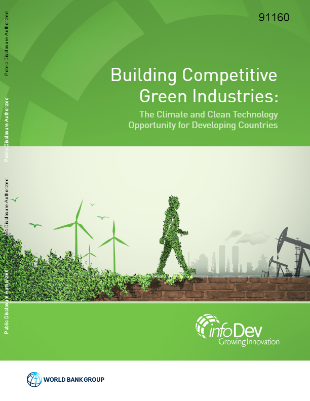Climate Change Provides Developing Countries with an Opportunity to Build Local Green Industries
Climate change will have its largest impacts on developing countries, with poor populations particularly hard hit and unable to adequately adapt (World Bank, 2013a). There are ongoing efforts to assist developing countries with efforts to mitigate and adapt to climate change through the deployment of appropriate climate and clean technologies. However, the main thrust of many of these efforts is to transfer technology from the developed world without regard to local industry involvement. There is an opportunity for developing countries to pursue a complementary approach, emphasizing building up the capabilities of local firms to participate in the business opportunities surrounding climate change. Climate change therefore represents an opportunity for developing countries to build local green industries that can drive sustainable economic growth and provide environmental benefits.
This report offers insight to policy makers and other stakeholders seeking to develop competitive green industries1 in developing countries. It provides an overview and estimate of the market opportunity for climate and clean technology business in developing countries over the coming decade. It identifies which aspects of these markets are most accessible to local firms and to small and medium enterprises (SMEs) in particular. Using a newly gathered set of firm data, it identifies which parts of the value chain are already being targeted by local industry. Finally, it provides a set of actions that can be considered for countries that intend to build up local green industries.
Developing Countries Are Increasingly Driving Growth and Innovation in the Global Climate and Clean Technology Market
Until recently, businesses and governments in the developed world have been driving growth and innovation in clean technology markets, but emerging economies and developing world markets are increasingly powering the sector as shown in Figure E1.2 In 2012, clean technology investment rose by 19 percent in developing countries (to $112 billion per year) compared with an overall decline of 12 percent globally (to $244 billion per year), suggesting that clean technology investment is shifting towards developing economies in the near term.
This accelerating shift from the developed to the developing world is driving innovation as technologies, processes, and financing public investment than traditional sectors. This investment obstacle is even more pronounced in developing countries where payback scenarios are more uncertain and SMEs and new ventures are riskier.











